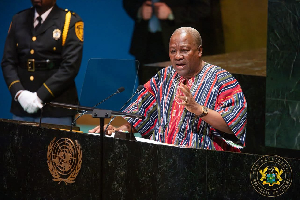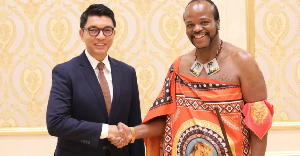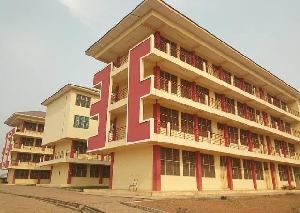Efforts in Ghana at reducing poverty might not yield much if there was no marked increase in exports, said Mr Peter Obeng, Director of Product Development, Ghana Export Promotion Authority (GEPA).
This is because all over the world export trade is a major lever in job creation and inextricably linked to personal incomes.
Mr Obeng was speaking to the Ghana News Agency (GNA) on the sidelines of a workshop on product development and adaptation for handicraft producers at Agotime-Kpetoe in the Volta Region.
The participants were mainly kente weavers who produce for the local market and have hardly any marketing expertise.
Mr Obeng said: “Looms would be creaking and cranking in the event of one of the weavers winning a big contract to supply specific kente products and thereby engage many, many, youths in kente weaving to bring poverty down”.
He said there was also the need for kente weavers to segment the market and do some targeting, using pricing, without sacrificing quality.
Mr Obeng said he believed kente weavers could produce kente clothing to meet everybody’s pocket.
He regretted the poor financing outlays at the banks for people in non-traditional exports.
Mrs Theodora Froko, Head of Handicraft at GEPA, expressed regret that export earnings from handicraft plummeted from a peak of $15,000,000 in 2001 to $11,310,850 in 2002 and 11 years later, to a low $2,462,262 in 2013.
She blamed the decline on several factors, the most prevalent being the lack of investment in product and design development by Ghanaian handicraft producers.
Mrs Froko said GEPA had recognised the need to improve the designs of Ghanaian handicraft and also help them acquire knowledge of the export business so that Ghanaian products could compete on the world market.
She said the objective of the training was to improve productive skills, expose producers to the intricacies of the business and give skills in handicraft production and marketing.
Mrs Froko said it should be possible for Agotime to become an industrial kente hub, but suggested that weavers added value to the products.
Thompson Yaw Avornyotse, a celebrated Kente Weaver from Akpo Kope, near Kpetoe, said colleague kente weavers were not adapting to the market trends.
He said in many cases the producers did not have the skills to finish to the dainty tastes of the increasingly sophisticated clients.
“You don’t sell what you want to sell but what people want to buy,” Mr Avornyotse said.
Bright Agbi, a participant, told the GNA that high input prices had put cost price above the means of many and creating marketing nightmares for weavers.
The Agotime-Kpetoe Traditional Area is unanimous to kente and has an annual kente festival to herald kente and its market potentials.
Some other products under handicraft are basket wares, bamboo, ceramics, and batik tie and dye.
Business News of Monday, 15 December 2014
Source: GNA
Poverty reduction and export trade intertwined – GEPA

Entertainment











